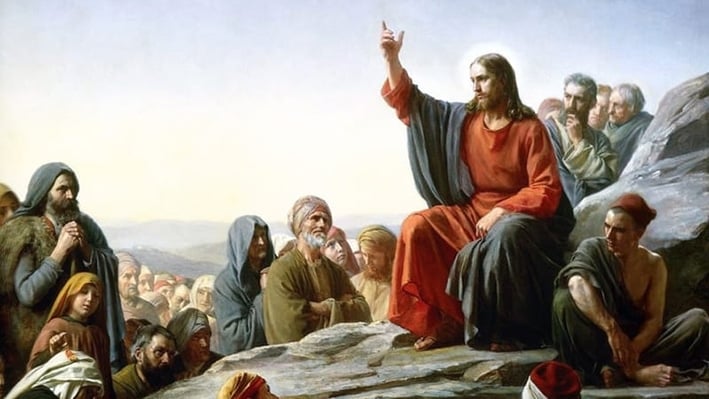
“Dear Father, Some people say that the main thing we need to do in the Church is not so much get people back to Sunday Mass but rather foster care for the poor and for those of other ethnic backgrounds, be more compassionate, etc. How should we view this?
In simple terms, these other aims are very important, but they will be fostered more effectively if people first put God, and the Mass, at the centre of their lives. The Mass is fundamental. The third commandment tells us to remember to keep holy the Lord’s Day, and the principal way we do this is by attending Mass.
If someone is not attending Mass, they are leaving God very much out of their life. And if God is not the centre of their life, they will not be inclined to do his will in everything, including giving themselves generously and compassionately to others.
Here the first commandment also comes to mind: You shall not have strange gods before me. Whatever other activities are keeping someone away from the worship of God on Sunday are, in some way, assuming the role of a strange god. This might be sport, earning more money, working outside the home, or simply relaxation.
Our Lord said in the Sermon on the Mount, “For where your treasure is, there will your heart be also” (Mt 6:21). We do well from time to time to ask ourselves where our heart is. Is it in God, so that God is the centre of our life, and we find time each day for prayer and, at least each week, to worship him by attending Mass? Or is it rather in ourselves, in our plans, in making more money, in sport, etc.?
If the Mass is the centre of people’s lives, both they and the life of their parish take on a new vitality. Pope Francis writes in his Apostolic Letter Desiderio desideravi that “a comprehensive, organic, and integrated pastoral practice is the consequence of placing the Sunday Eucharist, the foundation of communion, at the centre of the life of the community.
The theological understanding of the Liturgy does not in any way permit that these words be understood to mean to reduce everything to the aspect of worship.
Furthermore, when the Mass becomes, in the words of St Josemaria Escriva, the “centre and root” of the interior life, all other activities become an extension of the Mass and they are done with greater love and generosity.”
A celebration that does not evangelise is not authentic, just as a proclamation that does not lead to an encounter with the risen Lord in the celebration is not authentic.
And then both of these, without the testimony of charity, are like sounding a noisy gong or a clanging cymbal (1 Cor 13:1)”.
As the Pope says, when the Sunday Eucharist is at the centre of the life of the community, the Mass is not just an act of worship. An authentic celebration of the Mass leads to evangelisation. That is, when people put Christ at the centre of their lives, they are eager to share his love and truth with others in the work of evangelisation. This in turn can lead to bringing more people back to or into the Church, thus helping them and building up the parish community.
Likewise, the Mass leads to “an encounter with the risen Lord” through the readings, the prayers and especially Holy Communion. This personal encounter cannot but lead to greater love for Christ and for others, which will be lived out in the family, in the workplace, in care for the poor and the marginalised, etc.
Furthermore, when the Mass becomes, in the words of St Josemaria Escriva, the “centre and root” of the interior life, all other activities become an extension of the Mass and they are done with greater love and generosity. As the Catechism puts it, “The Church which is the body of Christ participates in the offering of her Head. With him, she herself is offered whole and entire… The lives of the faithful, their praise, sufferings, prayer, and work are united with those of Christ and with his total offering, and so acquire a new value” (CCC 1368).
St Josemaria once said in a meditation, “We serve [God] not only at the altar, but throughout the world – which for us is an altar. All the works of men are done as if on an altar, and each one of you, in that union of contemplative souls that is your day, in some way says ‘his Mass’, which lasts twenty-four hours, in expectation of the Mass to follow, which will last another twenty-four hours, and so on until the end of your lives.”
And Cardinal Joseph Cardijn, founder of the Young Christian Workers, puts it very succinctly: “Your workbench is your altar.”
So, when the Mass is the centre of people’s lives, all their activity, including their love for others, is an extension of the Mass and it improves greatly. Yes, the Mass is fundamental.
Related:
